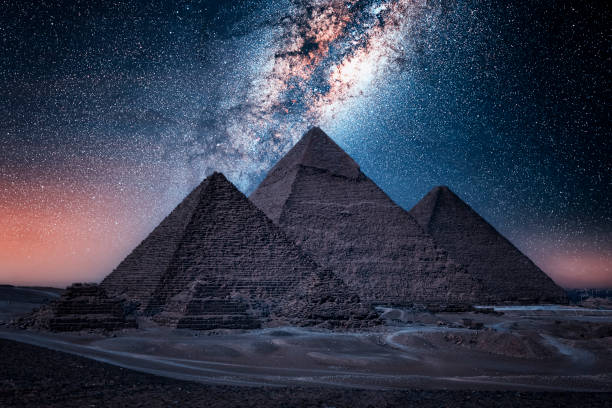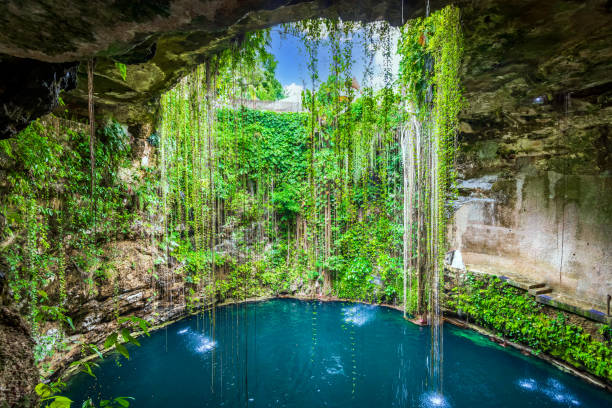Unlocking the Mysteries of Ancient Egypt: A Comprehensive Guide to the Land of Pharaohs
Ancient Egypt is one of the most fascinating and mysterious civilizations in history. For centuries, its pyramids, temples, and hieroglyphs have captured the imagination of people around the world. Today, thanks to the work of archaeologists and Egyptologists, we know more about ancient Egypt than ever before.
This comprehensive guide will take you on a journey through the Land of the Pharaohs, from its earliest days to its decline and fall. You will learn about its rich culture, its complex religion, and its amazing achievements in architecture, science, and art.

Geography and Climate
Ancient Egypt was located in the northeastern corner of Africa, along the Nile River. The Nile was the lifeblood of ancient Egypt, providing water for irrigation, transportation, and drinking. Egypt’s climate is hot and dry, with little rainfall. This made the Nile Valley a valuable oasis, and it is here that the ancient Egyptians built their civilization.
History
Ancient Egyptian history is divided into three main periods: the Old Kingdom (2686-2181 BC), the Middle Kingdom (2055-1650 BC), and the New Kingdom (1550-1070 BC). The Old Kingdom was the golden age of ancient Egypt, during which the pyramids were built and the pharaohs were at their most powerful. The Middle Kingdom saw a decline in the power of the pharaohs, but it was also a time of great cultural and intellectual flourishing. The New Kingdom was a period of renewed power and prosperity, and it was during this time that Egypt expanded its empire and built some of its most famous temples, including Karnak and Luxor.
Culture
Ancient Egyptian culture was rich and complex. The Egyptians were deeply religious, and their religion was central to their lives. They believed in a pantheon of gods and goddesses, and they built elaborate temples and shrines to worship them. The Egyptians also had a strong belief in the afterlife, and they mummified their dead to preserve their bodies for the journey to the next world.
The Egyptians were also skilled artisans and craftsmen. They produced beautiful jewelry, pottery, and sculptures. They were also experts in architecture, and they built some of the most impressive structures in the ancient world, including the pyramids, the Sphinx, and the temples of Karnak and Luxor.

Government and Society
Ancient Egypt was a monarchy, ruled by a pharaoh. The pharaoh was considered to be a god-king, and he had absolute power over his subjects. Egyptian society was highly stratified, with a clear distinction between the upper class and the lower class. The upper class consisted of the pharaoh, his family, and his nobles. The lower class consisted of farmers, artisans, and laborers.
Religion
Ancient Egyptian religion was polytheistic, meaning that they believed in many gods and goddesses. The most important gods included Ra (the sun god), Amun (the king of the gods), Osiris (the god of the underworld), and Isis (the goddess of motherhood and magic). The Egyptians believed that the gods controlled all aspects of the natural world, and they prayed to them for help and protection.
The Egyptians also believed in the afterlife. They believed that when a person died, their soul would travel to the underworld, where it would be judged by Osiris. If the soul was found to be worthy, it would be allowed to enter the Field of Reeds, a paradise where they would live forever. If the soul was found to be unworthy, it would be devoured by a monster called Ammit.

Achievements
The ancient Egyptians made significant contributions to many fields, including architecture, science, art, and literature. They built some of the most impressive structures in the ancient world, including the pyramids, the Sphinx, and the temples of Karnak and Luxor. They also made advances in astronomy, mathematics, and medicine. In addition, they produced a rich body of art and literature, including the Pyramid Texts, the Book of the Dead, and the Tale of Sinuhe.
Conclusion
Ancient Egypt was one of the most remarkable civilizations in history. Its pyramids, temples, and hieroglyphs continue to fascinate and amaze people around the world. Thanks to the work of archaeologists and Egyptologists, we know more about ancient Egypt than ever before. But there are still many mysteries that remain unsolved. Perhaps one day, we will be able to unlock all of the secrets of the Land of the Pharaohs.






